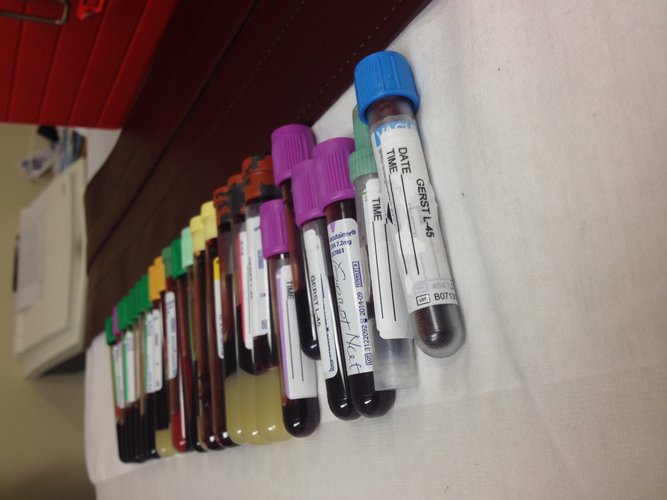Ageing
In much of Europe 15-20% of the population is over 65 years of age and the proportion of elderly people in the population is expected to grow larger in coming years as life expectancy increases. Health issues associated with an ageing and sedentary population are major issues for society as a whole to improve quality of life and limit the economic impact of health care.
Research on ageing related issues is time consuming and expensive. Testing theories and medicine ideally requires monitoring large groups of people over the course of their lives but results from such a study would take 80 years to conclude.
Aging fast
What if researchers could speed up the ageing process? In certain aspects that is exactly what happens to astronauts in space. The changes experienced in their bodies, the wasting away of muscles and bones and changes in heart and blood vessels resemble what happens in our bodies as we grow older. Life in space accelerates but interestingly these changes are reversible when astronauts return to Earth.
Researching these changes offers clues on how to reverse or limit ageing for people on Earth.
Without gravity blood rushes to the head and blood pressure goes down as our heart no longer has to fight gravity to pump blood to our upper body. When astronauts return to Earth, their bodies need time to adapt. Some astronauts experience problems standing up that can lead to fainting, this is called orthostatic intolerance in medicine terms.

The cause of this problem is being linked to receptors in blood vessels and altered hormones based on bedrest and astronaut studies. Elderly and sedentary patients experience the same problems standing up and cause much injury as it can cause people to fall over. The problem worsens as older people's bones are frailer, just as in astronauts. Spaceflight research has shown that arteries lose elasticity over time which leads to an increases the resistance of blood flow to the brain – could this be a cause of orthostatic intolerance?
Gravity's role on blood vessels was investigated in mice for an ESA-NASA experiment on the Space Shuttle called Myocyte. The vascular system can adapt to changes in blood pressure by contracting cells in the wall of a blood vessel, this is regulated by changes in calcium. In the Myocyte experiment groups of rats spent several days in space, some floated freely while others were placed in a centrifuge that recreated Earthly gravity. The rats that floated in microgravity produced less calcium compared to rats kept in simulated gravity and controls that stayed on Earth. The data from this study shows that gravity plays an important role in keeping blood vessels supple and reactive. More importantly it hints at what processes warrant further investigation – calcium expression – to overcome orthostatic intolerance.
The key to longer life

Most human cells divide and regenerate but the number of times they do this is limited. Cell research on the immune system with ESA’s Kubik centrifuge has found that the 5-LOX enzyme regulates life expectancy of human cells.
Blood samples from two healthy donors were sent to the orbital outpost. One set was exposed to weightlessness for two days, while the other was held in Kubik to simulate Earth-like gravity. The samples were then frozen and sent back to Earth for analysis.
The weightless samples showed more 5-LOX activity than the centrifuged samples and a set that had remained on the ground. In fact, the centrifuged samples remained identical to the ground samples.
Researchers now have an enzyme they can target that could play a role in causing weakened immune systems. Most interestingly the 5-LOX enzyme can be blocked with existing drugs, so using these findings to improve human health could be a close reality. Limiting biological activity of cell signals such as those controlled by 5-LOX might even slow parts of the ageing process.







